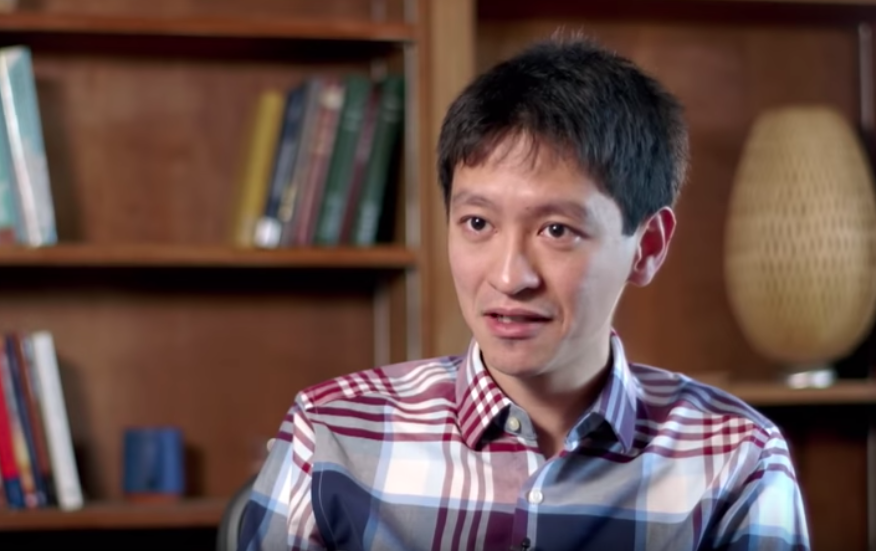'Inherent difficulties' in AGC's case against Li Shengwu: Chief Justice

Chief Justice Sundaresh Menon has taken the Attorney-General’s Chambers (AGC) to task for the arguments that it has presented against Li Shengwu, noting that there were now “inherent difficulties” in what has transpired in the case.
CJ Menon was speaking on Friday (18 January) at an Apex Court hearing of Li’s appeal against an earlier decision by the High Court that had allowed AGC to serve papers on him outside Singapore, relating to contempt of court proceedings.
He told AGC’s Senior Counsel Francis Ng, “Your arguments have abandoned the original arguments of the Attorney-General for proceeding (with this case).
“You’re now saying that the correct jurisdictional basis is Section 15, but that was not the basis on which you obtained your original leave. If you wanted to pursue a different line, it was incumbent upon you to come and ask permission.”
The Chief Justice was referring to Section 15 of the Supreme Court of Judicature Act, which defines the criminal jurisdiction of the Singapore High Court. Lawyers acting for AGC and Li had been instructed by the Court of Appeal to make legal submissions addressing a number of key questions.
They included: which laws allow Singapore courts to exercise jurisdiction over an alleged contemnor (someone who commits contempt of court) who has gone overseas, and whether a newly enacted law that enables serving documents on a person who is overseas can be applied retroactively.
In response, Ng maintained that AGC was not changing the basis on which jurisdictional basis was sought. Nevertheless, he acknowledged, “I wrongly assumed that the breadth of the question permitted latitude.”
Background to the case
Li, a 34-year-old assistant professor of economics at Harvard University, was served court papers for alleged contempt of court on 17 October 2017 in the United States.
The case stems from a private Facebook post made by Li on 15 July 2017, which allegedly attacked Singapore’s judiciary. Linking to a Wall Street Journal article about the much reported Lee family feud, the eldest son of Lee Hsien Yang had said that “the Singapore government is very litigious and has a pliant court system”.
In response, the AGC issued a letter to Li, highlighting that “the highly inflammatory nature of these assertions…directly contradict Mr Lee Kuan Yew’s values and the judicial system” as well as requesting for him to “purge the contempt” and “issue and post prominently a written apology”.
Li later explained that his post was intended as a criticism of the Singapore government’s effect on press freedom and that the “AGC chose to escalate the dispute”. However, he did not take down the private post, choosing instead to amend it to “remove any misunderstanding“.
With Li’s failure to comply with its requests, the AGC in August 2017 applied for – and was subsequently granted – permission in the High Court to commence proceedings against Li for contempt of court.
AGC maintains that the alleged offence was committed in Singapore.
Judgement reserved
Together with Judges of Appeal Tay Yong Kwang and Steven Chong, CJ Menon heard arguments from Ng and Li’s counsel, Abraham Vergis of Providence Law Asia for about three hours.
Vergis said, “It was quite troubling that in different courts, the AGC was making contrary arguments…we say that the AGC should be advised to be principled and consistent when it comes to making such submissions.
“When they take very jarring positions before the courts….that does not conduce to the administration of justice and it does not inspire confidence.”
Vergis made reference to Order 11, Rule 1 of the Rules of Court, which sets out the basis for Singapore courts to exercise jurisdiction. It was promulgated in October 2017, three months after Li’s post was made. He argued, “The legislature manifestly did not intend for the provision to apply retroactively.”
Conversely, Ng argued that the wording of Order 11, Rule 1 “does not preclude retroactive application”. He stressed, “The law is that the various limbs of (Order 11) should be broadly construed”.
The Court of Appeal has reserved judgement on the matter.
Related stories
Wei Ling slams AGC’s complaint to Law Society about preparation of Lee Kuan Yew’s will
Lee Hsien Yang’s wife will face disciplinary tribunal: AGC
AGC’s prosecution of Li Shengwu continues: Lee Hsien Yang
Li Shengwu challenges order that let AGC serve papers on him in the US



